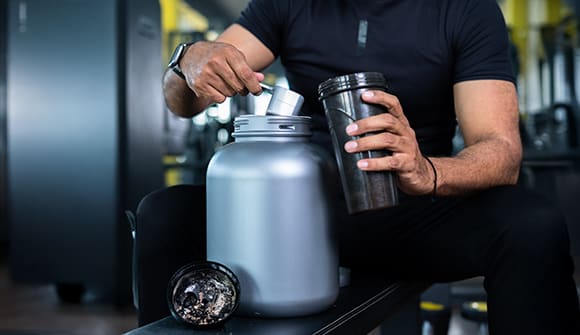‘They gave me more time’
Trained bystanders perform CPR when man’s heart suddenly stops.
Article Author: Juliette Allen
Article Date:

Manuel “Manny” Barbas remembers everything about that dreary Tuesday, until he doesn’t.
“August 6, 2024; I’ll never forget it,” the 80-year-old recalled. “It was raining. I drove to the Jewish Community Alliance (JCA) around 6 pm. When I got there, I sat down with my friends, and that’s the last thing I remember.”
Heart stops, CPR starts
At that exact moment, Harry Abram, MD, a pediatric neurologist with Nemours Children’s Health, Jacksonville, who treats patients at Wolfson Children’s Hospital, was walking into the JCA to work out in the gym.
“A gentleman ran out from one of the back rooms and said one of his friends was having a seizure and needed help,” Dr. Abram remembered. “I told him I was a doctor and followed him. When I got to Manny, he was on the ground and unresponsive next to a table.”
Dr. Abram continued, “I recognized immediately that he wasn’t having a seizure, but was experiencing a cardiac arrest; his heart had stopped. He wasn’t breathing, didn’t have a heartbeat and was turning as blue as the T-shirt I was wearing.”
Alongside JCA physical education and sports coordinator Alex Minardi, Dr. Abram started cardiopulmonary resuscitation (CPR) by doing chest compressions as the center’s fitness and wellness administrative coordinator Beshka Hoshall provided breaths. At the same time, JCA staff members Tommy Collins and Barbara Sweet ran to get a nearby automated external defibrillator (AED). Following a shock from the AED, the team continued CPR until paramedics arrived to take Barbas to the hospital.
“I was certain Manny had passed that evening and expected only bad news,” Dr. Abram said. “When I asked JCA staff in the days that followed if there were any updates, they told me he was still alive in the hospital but didn’t know any more about his condition. Eventually, I stopped asking, thinking it wasn’t going to be a good outcome.”
‘I’m just thankful to be here’
That changed exactly two weeks after Barbas’ heart stopped.
“I was back at the JCA and had just gotten on the treadmill when I was told Manny was back there with his friends again,” Dr. Abram remembered. “I couldn’t believe it.”
Barbas spent nine days in the hospital after his cardiac arrest. Although it’s unclear exactly what caused his heart to stop, doctors believe it may have been a combination of reduced heart function, lower potassium and a medication used to treat his atrial fibrillation (Afib). He received follow-up care with his Baptist Heart Specialists electrophysiologist, Christopher Ruisi, MD, who tweaked his meds and later placed an implantable cardioverter-defibrillator (ICD) in Barbas to regulate his heartbeat and shock his heart, should it stop again.
“Now that Manny has an ICD in place for secondary prevention, he should be protected against arrhythmias, which should hopefully allow him to live longer,” Dr. Ruisi said. “Importantly, the ICD shouldn't impede his lifestyle in any way.”
Though there’s no “good” place for your heart to stop, Barbas said he feels like he was in the right one.
“The miracle is that there was a team of people trained in CPR readily available, and they had an AED machine. Had this happened at home, my wife wouldn’t have known what to do besides calling 911,” he said. “It makes you think about how precious life is. They say, ‘You never know when your time is up,’ well my time was up. But thank goodness for the circumstances and the people who were around me, they gave me more time.”
Although, as a physician, Dr. Abram is required to be recertified every two years in basic life support, he emphasized the importance for all people to know life-saving CPR.
“I’m certain Manny wouldn’t have lived if it hadn't been for the CPR and quick action by the JCA staff with the AED,” he said. “I was elated to see him back with his friends.”
Do you know how to perform CPR? It could save someone’s life. To find CPR training classes through the American Heart Association, click here. The JCA also offers free and discounted CPR classes, which can be found here.



